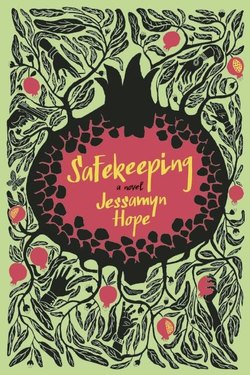Читать книгу Safekeeping - Jessamyn Hope - Страница 20
На сайте Литреса книга снята с продажи.
ОглавлениеAdam walked down the hallway, looking for the archives office. Eyal’s office door was open, revealing the secretary hunched over his desk, but everyone else had gone home early, as was the custom on Fridays, which sounded like a great custom to Adam until he found out Israel had a six-day workweek with only Saturdays off. Luckily, Barry, who had returned from reserve duty the evening before, wasn’t making him wait until after Shabbat to go through the archives. He agreed to meet him the following day, as soon as Adam was finished with his dishwashing.
Adam knocked on the open door, and a stout man rose from behind a desk, extending his hand. “Shabbat shalom! You must be Adam.”
Adam had expected a guy in his thirties, old enough to be in charge of the archives, young enough to be a soldier. How could this graying man with reading glasses tucked into the collar of his work shirt just have returned from reserve duty? They shook hands.
“Sorry about leaving you so many messages,” said Adam.
Everything about Barry’s face sloped down, his nose, the outer corners of his eyes, and yet he had a cheerful aura, a sense of humor under his clipped accent. “That’s quite all right. It was nice to come home and have so many messages not from my mother. Last time, she forgot I was doing miluim and kept calling long-distance from Jo’burg asking why I wasn’t calling her back.”
“How often do you do reserve duty?”
“Every three years or so. This was probably my last. Funny, for years I hated going, and now . . .” He smiled, shrugged. “Well, I suppose we all get too old for something. So you’re looking for a woman named Dagmar, eh? Who lived here in, what was it? Forty-seven? Dagmar, sounds Swedish. Or maybe German?”
Disappointed that yet another person didn’t remember Dagmar, Adam said, “Not sure,” before recalling the liebster Liebling and all the German in the goodbye note. “Sorry. Definitely German. Don’t have a last name though.”
“Not a problem. The kibbutz was tiny back then. We’ll go through the papers of everyone who became a member in the forties.”
Barry’s sport sandals squeaked on the linoleum as he walked to the front of the room and ran a finger down a dusty cabinet. Tall metal filing cabinets lined every wall, most topped by cardboard filing boxes. Barry pulled out the bottommost drawer and returned with a stack of files. “Do you read Hebrew?”
“I can sound out the letters.”
He jotted four letters on a scrap of paper. “That’s ‘Dagmar.’ Look for it here, on the top line of each form.”
Barry set half the stack down in front of Adam and took a seat with the other half. Adam dropped into a chair and eagerly searched the papers. Every time the passport-sized black-and-white photo stapled to the forms revealed a young woman, Adam compared the name to Barry’s jotting twice, three times if she was pretty.
When Adam reached the last form without success, he looked to Barry, who shook his head. “No luck here either. We can check the files from the thirties, but those people, the pioneers who founded the kibbutz, are legendary. I would have heard of Dagmar if she were among them.”
As Barry carried the file back to the cabinet, Adam contemplated Dagmar’s name written on the scrap of paper. The four letters, though somewhat familiar from Hebrew school, were foreign enough for it to seem strange that these squiggles——could represent a human being. Please, please, he thought, let these squiggles be in this next batch of files.
Barry settled behind his desk with a manila file too thin to need two people to leaf through. Adam, hands clasped on top of the desk, leaned forward while Barry’s eyes skimmed the papers. A moment later, he removed his reading glasses and shook his head again.
Adam sat back. “This makes no sense. She was my grandfather’s girlfriend when he was here. She was a kibbutznik. I have a letter from her, addressed from the kibbutz.”
“I don’t know what to tell you. I made aliyah in sixty-seven, after the Six-Day War, so I can personally say there hasn’t been a Dagmar since then. And she just isn’t in the records from before that.”
Adam dropped his head. He had accepted that Dagmar no longer lived here, that it had been naïve of him to think that she did just because she had written she would be here “for the rest of her life.” How many people lived the lives they planned for themselves when they were young? Now he had to swallow that she had never lived here. He would have to start looking for her elsewhere. But where?
Barry tapped the desk. “I have an idea. If you’re sure she was a kibbutznik, you could write the United Kibbutz Movement. One letter, and you could find out if she’s living on any of the three hundred kibbutzim in the country. Unless you think she might be religious. Religious kibbutzim are under a different umbrella.”
In the note she had scoffed at the world to come, and he couldn’t imagine his grandfather with an orthodox woman. He used to get a chuckle out of the wigged women fitwalking over the Williamsburg Bridge in their long skirts and opaque nylons. “No, she wasn’t religious . . . Can we first look up my zayde’s file? Franz Rosenberg?”
“Certainly. The DPs must be somewhere.”
While Barry walked around the room, inspecting the file drawers, Adam closed his eyes and tried to stay calm.
